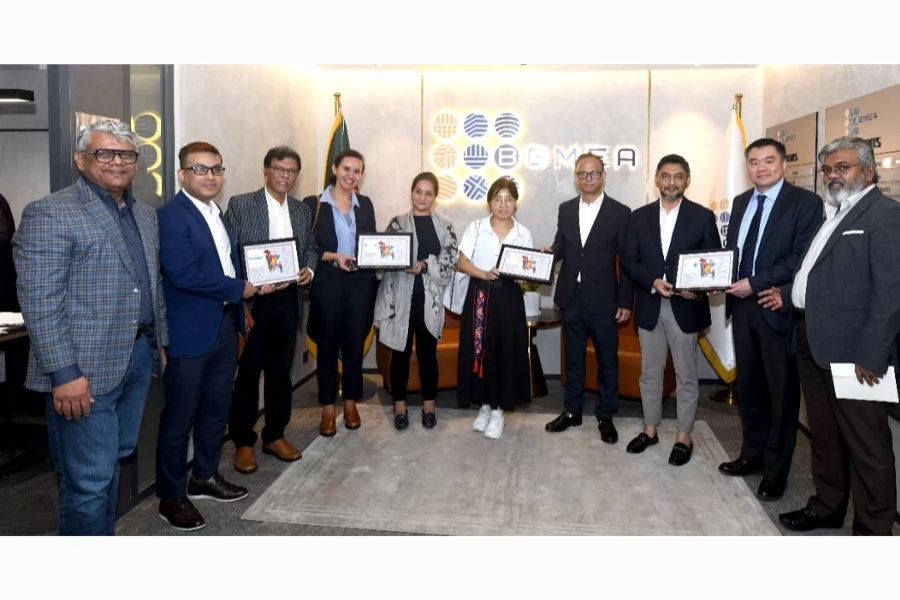
Published :
Updated :

A delegation from the International Monetary Fund (IMF) met with the Bangladesh Garment Manufacturers and Exporters Association (BGMEA) on Wednesday to discuss the current state and future risks of the country's ready-made garment (RMG) sector, aiming to ensure macroeconomic stability.
The meeting took place at the BGMEA office in Uttara and was attended by BGMEA President Mahmud Hasan Khan, Senior Vice President Enamul Haque Khan, Vice Presidents Md. Rezwan Selim and Vidya Amrit Khan, and other directors. The IMF delegation included Senior Economist Qiaoe Chen, Senior Economist Ruifeng Zhang, and Economist Ayah Said.
The primary objective of the IMF delegation was to gather insights into the sector's health and potential vulnerabilities amidst global volatility, a key element in assessing Bangladesh’s overall economic stability. Both sides engaged in a deep exchange of views on strategic ways to achieve sustainable industry growth despite global uncertainties.
Key discussion points included the potential impact of US tariffs on garment exports, the effects of Bangladesh’s imminent graduation from Least Developed Country (LDC) status, strategies for sustained growth, and the diversification into high-value and value-added products.
LDC Graduation and Trade Policy Challenges:
BGMEA leaders highlighted the critical necessity of maintaining duty-free access post-LDC graduation. They informed the IMF that the BGMEA Board has urged the government to prioritize signing Free Trade Agreements (FTAs) and Economic Partnership Agreements (EPAs) with major trading partners.
These key partners include the European Union, the United Kingdom, Japan, and Canada, which are vital for retaining tariff benefits and competitiveness once Bangladesh loses its LDC-specific trade preferences.
The BGMEA leaders presented the industry’s strategic roadmap, emphasizing a transition from a labor-intensive production model to a high-value model driven by innovation and technology.
They stressed the need to enhance capacity in manufacturing Man-Made Fiber (MMF) and Technical Textile-based garments and prioritizing skill development for workers to meet the demands of this technological upgrade.
The BGMEA also highlighted their ongoing recommendations to the government aimed at reducing the Cost of Doing Business (CoD) and easing trade:Ensuring an uninterrupted supply of electricity and gas.Improving the efficiency of port management.
Simplifying Customs and Bond procedures.Bringing interest rates down to a single digit. Fast-tracking the completion of critical infrastructure projects like the Dhaka-Chattogram highway.
The IMF delegation concluded the meeting by praising the apparel sector’s contributions to Bangladesh's economic stability and development agenda.


 For all latest news, follow The Financial Express Google News channel.
For all latest news, follow The Financial Express Google News channel.